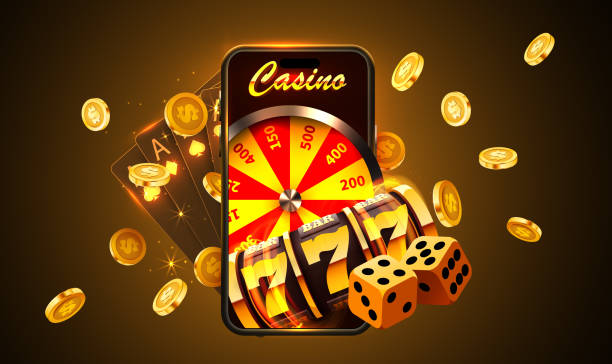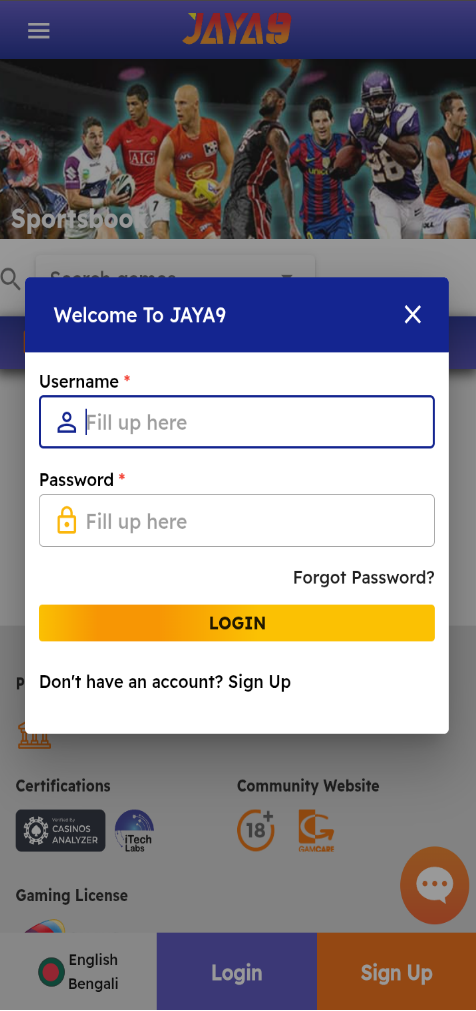
Support Groups for Problem Gamblers
In today’s society, gambling has become a prevalent form of entertainment. However, for some individuals, what begins as a harmless pastime can spiral into a debilitating addiction. Problem gambling is a serious issue that affects not only the gambler but also their families and communities. To combat this growing concern, support groups for problem gamblers have emerged as vital resources. These groups provide a space for individuals to share experiences, seek guidance, and find the support needed to navigate their recovery journey. If you’re feeling lost in your gambling habits, reaching out to a support network like Support Groups for Problem Gamblers in Bangladesh joya9 can be a crucial first step.
Understanding Problem Gambling
Problem gambling can be characterized by an impulse control disorder that leads individuals to continuously gamble despite negative consequences. This can manifest in various ways, including financial problems, relationship issues, and mental health struggles. Recognizing the signs of problem gambling is essential for early intervention. These signs may include:
- Frequent thoughts about gambling or planning the next gambling activity
- Gambling as a way to escape from personal problems or distress
- Chasing losses by continuing to gamble in hopes of winning back lost money
- Experiencing withdrawal symptoms when not gambling, such as irritability or anxiety
Understanding these signs can help individuals acknowledge their struggles and seek help. This is where support groups come into play, offering an avenue for recovery and community.
The Importance of Support Groups
Support groups play a pivotal role in the recovery of problem gamblers. They offer several key benefits:
1. Shared Experiences
One of the most powerful aspects of support groups is the opportunity for individuals to share their experiences in a safe environment. Participants realize they are not alone in their struggles, which can foster a sense of belonging and acceptance.
2. Encouragement and Accountability

Support groups provide a network of individuals who encourage one another on their journey to recovery. The accountability factor is significant; regular meetings can help members stay committed to their goals and resist the urge to gamble.
3. Access to Resources
Many support groups offer resources, including literature, workshops, and referrals to professional counseling services. This knowledge is invaluable for individuals seeking to understand their addiction better and develop coping strategies.
4. Development of Coping Strategies
Members of support groups often share effective coping strategies that have worked for them. Implementing these techniques can help individuals manage cravings and triggers, leading to a healthier mindset.
Types of Support Groups
There are various types of support groups available for problem gamblers, each with a unique approach to recovery. Some popular options include:
1. Gamblers Anonymous (GA)
Perhaps the most well-known support group, Gamblers Anonymous is a 12-step program that follows the principles of Alcoholics Anonymous. GA meetings are open to anyone who identifies as a problem gambler and provides a structured format for recovery.

2. Online Support Groups
For those who may feel uncomfortable attending in-person meetings, online support groups offer anonymity and flexibility. These platforms allow individuals to participate in discussions, seek advice, and share experiences from the comfort of their own homes.
3. Professional Counseling Groups
In addition to peer-led support groups, some individuals may benefit from professionally facilitated support groups. These groups often incorporate therapeutic techniques and are led by mental health professionals specializing in gambling addiction.
How to Join a Support Group
Joining a support group can feel daunting, yet it is a crucial step towards recovery. Here are some tips on how to find and join a support group:
- Research local options: Many communities have organizations dedicated to problem gambling. Search for meetings nearby or online to find a group that fits your schedule.
- Reach out: Don’t hesitate to contact group leaders or facilitators for more information about the group’s structure, meeting times, and requirements.
- Attend a meeting: Your first meeting might feel intimidating, but remember that everyone is there for the same reason. Be open to sharing your story and listening to others.
- Commit to participation: Recovery is a journey, and attending meetings regularly is vital for your growth. Engage with fellow members, seek help when needed, and offer support to others.
Overcoming Stigma
Unfortunately, a stigma still surrounds problem gambling, often leading individuals to feel shame or guilt about their addiction. Overcoming this stigma is essential for recovery. Support groups offer a non-judgmental space where individuals can express their struggles without fear of being labeled or ostracized.
By openly discussing problem gambling within a group context, participants can educate themselves about the realities of addiction, combat stigma, and promote understanding. This can be a powerful component of healing and acceptance.
Conclusion
Support groups for problem gamblers are invaluable resources that provide individuals with the necessary tools, understanding, and community to address their addiction. If you or someone you know is struggling with problem gambling, consider reaching out to a local support group. Remember: you are not alone, and recovery is possible.